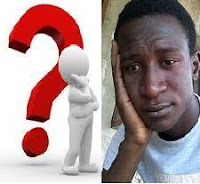Google began in March 1997 as a research project by Larry Page and Sergey Brin, Ph.D. students at Stanford working on the Stanford Digital Library Project (SDLP). The SDLP's goal was “to develop the enabling technologies for a single, integrated and universal digital library." and was funded through the National Science Foundation among other federal agencies. In search for a dissertation theme, Page considered—among other things—exploring the mathematical properties of the World Wide Web, understanding its link structure as a huge graph. His supervisor Terry Winograd encouraged him to pick this idea (which Page later recalled as "the best advice I ever got") and Page focused on the problem of finding out which web pages link to a given page, considering the number and nature of such backlinks to be valuable information about that page (with the role of citations in academic publishing in mind).[6] In his research project, nicknamed "BackRub", he was soon joined by Sergey Brin, a fellow Stanford Ph.D. student supported by a National Science Foundation Graduate Fellowship.[2] Brin was already a close friend, whom Page had first met in the summer of 1995 in a group of potential new students which Brin had volunteered to show around the campus.[6] Page's web crawler began exploring the web in March 1996, setting out from Page's own Stanford home page as its only starting point. To convert the backlink data that it gathered into a measure of importance for a given web page, Brin and Page developed the PageRank algorithm.[6] Analyzing BackRub's output—which, for a given URL, consisted of a list of backlinks ranked by importance—it occurred to them that a search engine based on PageRank would produce better results than existing techniques (existing search engines at the time essentially ranked results according to how many times the search term appeared on a page).[6][8]
A small search engine called "RankDex" from IDD Information Services (a subsidiary of Dow Jones) designed by Robin Li was, since 1996, already exploring a similar strategy for site-scoring and page ranking. The technology in RankDex would be patented [10] and used later when Li founded Baidu in China.[11][12]
Convinced that the pages with the most links to them from other highly relevant Web pages must be the most relevant pages associated with the search, Page and Brin tested their thesis as part of their studies, and laid the foundation for their search engine. By early 1997, the backrub page described the state as follows:[13]
Some Rough Statistics (from August 29th, 1996)
Total indexable HTML urls: 75.2306 Million
Total content downloaded: 207.022 gigabytes
...
BackRub is written in Java and Python and runs on several Sun Ultras and Intel Pentiums running Linux. The primary database is kept on an Sun Ultra II with 28GB of disk. Scott Hassan and Alan Steremberg have provided a great deal of very talented implementation help. Sergey Brin has also been very involved and deserves many thanks.
-Larry Page page@cs.stanford.edu
Originally the search engine used the Stanford website with the domain google.stanford.edu. The domain google.com was registered on September 15, 1997. They formally incorporated their company, Google Inc., on September 4, 1998 at a friend's garage in Menlo Park, California.
Both Brin and Page had been against using advertising pop-ups in a search engine, or an "advertising funded search engines" model, and they wrote a research paper in 1998 on the topic while still students. However, they soon changed their minds and early on allowed simple text ads.
The name "Google" originated from a misspelling of "googol,"[15][16] which refers to the number represented by a 1 followed by one-hundred zeros (although Enid Blyton used the phrase "Google Bun" in The Magic Faraway Tree (published 1941), The Folk of the Faraway Tree (published 1946), and called a clown character "Google" in Circus Days Again (published 1942), and there is also the Googleplex Star Thinker from Douglas Adams' The Hitchhiker's Guide to the Galaxy). Having found its way increasingly into everyday language, the verb, "google," was added to the Merriam Webster Collegiate Dictionary and the Oxford English Dictionary in 2006, meaning, "to use the Google search engine to obtain information on the Internet." The use of the term itself reflects their mission to organize a seemingly infinite amount of information on the web.[16]
Philanthropy
In 2004, Google formed a non-profit philanthropic wing, Google.org,
giving it a starting fund of $1 billion.[54]
The express mission of the organization is to help with the issues of climate
change (see also global warming), global public health, and global
poverty. Among its first projects is to develop a viable plug-in
hybrid electric vehicle that can attain 100 mpg
Time Warner's AOL unit and Google unveiled an expanded partnership on December 21, 2005, including an enhanced global advertising partnership and a $1 billion investment by Google for a 5% stake in AOL. As part of the collaboration, Google plans to work with AOL on video search and offer AOL's premium-video service within Google Video. This did not allow users of Google Video to search for AOL's premium-video services. Display advertising throughout the Google network will also increase.
In August 2003, Google signed a $900 million offer with News Corp.'s Fox Interactive Media unit to provide search and advertising on MySpace and other News Corp. websites including IGN, AmericanIdol.com, Fox.com, and Rotten Tomatoes, although Fox Sports is not included as a deal already exists between News Corp. and MSN.
On 6 December 2006, British Sky Broadcasting released details of a Sky and Google alliance. This includes a feature where Gmail will link with Sky and host a mail service for Sky, incorporating the email domain "@sky.com".
In 2007, Google displaced America Online as a key partner and sponsor of the NORAD Tracks Santa program.[68][69][70] Google Earth was used for the first time to give visitors to the website the impression that they were following Santa Claus' progress in 3-D. The program also made its presence known on YouTube in 2007 as part of its partnership with Google.
In January 2009, Google announced a partnership with the Pontifical Council for Social Communications, allowing the Pope to have his own channel on YouTube.
(c) Wikipedia

























